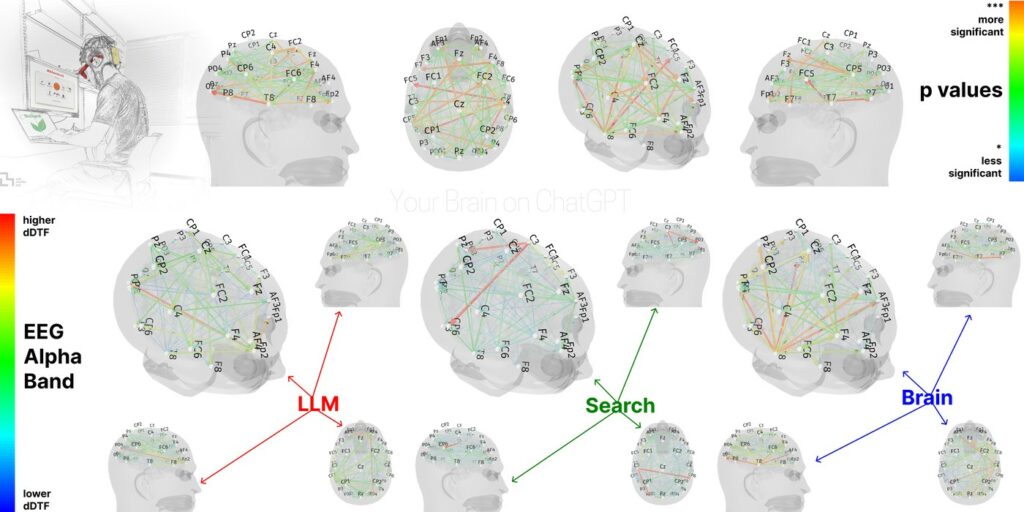
During a RHC Conference, Corrado Giustozzi underlined a truth as simple as it is powerful: “Human beings have always been creators of amplifiers.”. From the wheel to the car, every invention has had a precise purpose: to do better, to do faster. We have transformed hours into minutes, days into moments. We have gained time, efficiency, speed.
But all this… at what cost?
In the context of emerging AI tools, the Massachusetts Institute of Technology (MIT) conducted a study on how the repeated use of ChatGPT to write essays can generate a form of “cognitive debt” detecting a reduction in the capacity for authentic reasoning and personal analytical skills.
The MIT research involved 54 participants in different conditions experimental—autonomous writing, assisted by traditional search engines and entrusted to artificial intelligence—with the aim of quantifying the neuro-cognitive impact of each approach.

The data collected via electroencephalography revealed that fully autonomous writing stimulated the most robust and distributed brain connectivity, followed by Google use. In contrast, ChatGPT use showed weaker connectivity, particularly in the alpha and beta bands, a sign of reduced cognitive effort. This suggests that the AI assistant lightens the mental load, but at the expense of the brain’s active engagement.
When participants reversed the experience, switching from AI to autonomous writing, the EEG showed that connectivity remained depressed. This suggests that exposure to AI can have long-lasting effects on cognition, impairing mental alertness even after the assistant was stopped.
In terms of language and memory skills, the subjects had difficulty correctly quoting parts of the text created with the AI, with much higher error rates than the other two groups, and also reported a lower sense of ownership of the work. The texts produced with ChatGPT also showed less lexical and structural diversity.
The educational implications that emerged from this work are relevant: the early and repeated use of artificial intelligences for tasks that require cognitive effort can induce a sort of dependence, reducing the capacity for autonomous thinking. The authors suggest that AI should be used as a support tool, not as a substitute, preferably after the student has exercised his or her skills independently.
In addition to the cognitive impact, the environmental issue is also raised: the use of AI models such as ChatGPT requires energy consumption and computational resources significantly higher than standard web searches, increasing the “debt” also at an ecological level. In summary, the study highlights that, despite the practical advantages, an unstructured use of AI can compromise its educational function, making a balanced and conscious pedagogical approach necessary.
The study points out and states that using ChatGPT does not make us stupid, but it states that if you use AI assistants too much to do the work for you, you will not learn anything.
Follow us on Google News to receive daily updates on cybersecurity. Contact us if you would like to report news, insights or content for publication.
